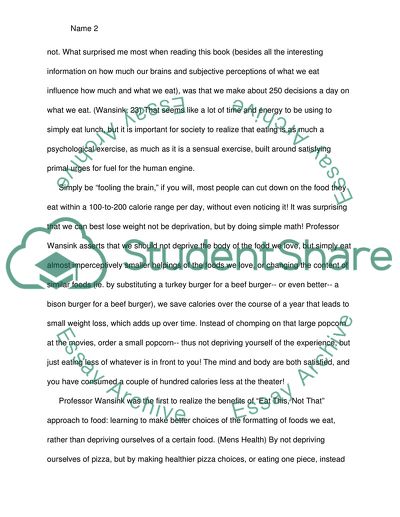Cite this document
(Mindless Eating Why we Eat more than we Think Book Report/Review, n.d.)
Mindless Eating Why we Eat more than we Think Book Report/Review. Retrieved from https://studentshare.org/health-sciences-medicine/1767787-mindless-eating
Mindless Eating Why we Eat more than we Think Book Report/Review. Retrieved from https://studentshare.org/health-sciences-medicine/1767787-mindless-eating
(Mindless Eating Why We Eat More Than We Think Book Report/Review)
Mindless Eating Why We Eat More Than We Think Book Report/Review. https://studentshare.org/health-sciences-medicine/1767787-mindless-eating.
Mindless Eating Why We Eat More Than We Think Book Report/Review. https://studentshare.org/health-sciences-medicine/1767787-mindless-eating.
“Mindless Eating Why We Eat More Than We Think Book Report/Review”, n.d. https://studentshare.org/health-sciences-medicine/1767787-mindless-eating.


